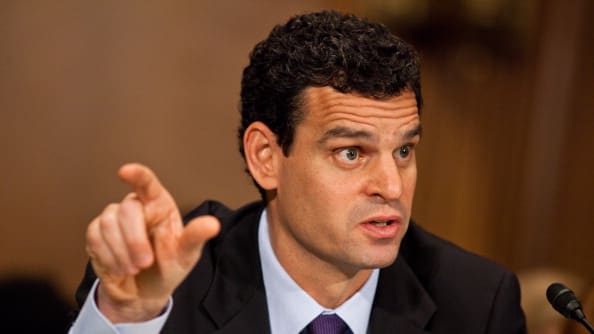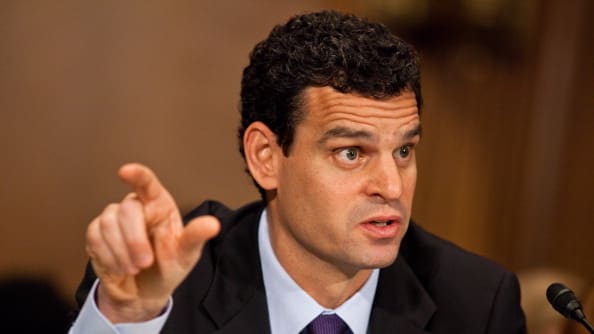Last night at New York University's Center for Law and Security, the man spearheading Iran sanctions, Treasury Department Undersecretary for Terrorism and Financial Intelligence David Cohen, ran down his office's successes in hitting Iran where it hurts.
"Taking aim at Iran’s oil revenues, combined with squeezing Iran’s access to the international financial system ever more tightly, created a dynamic that encouraged Iran to come to the negotiating table earlier this year," said Cohen, reading directly from his prepared remarks.

But those talks, for the moment, are going nowhere fast, and the story of the day has become Israeli Prime Minister Benjamin Netanyahu's calls for a more aggressive posture from the U.S.—so far rebuffed. But Israel was bound to come up. And it did, sort of.
The last questioner of the night—Cohen took no queries from the two rows in the back set aside for press—came from a young unidentified man in a dark suit. He made oblique reference to "countries impatient that sanctions are not enough."
"In working with our international partners, do we sometimes find people who are more important or more skeptical? Of course," Cohen replied. "It's a big and complicated world, and different countries have different perspectives."
This was a very diplomatic understatement from the Treasury man. Well more than just perspectives separate allies these days. Nonetheless, the frank and self-evident statement makes for a welcome departure from the incessant mantra that there's "no daylight" between the two countries when, in reality, you could get a tan lying between them. The discourse, though, could still use a stronger dose of reality. A good start might be naming the countries.

